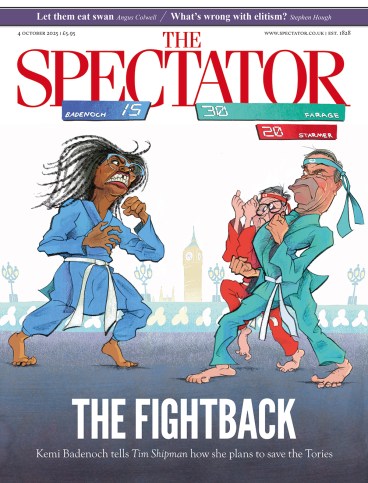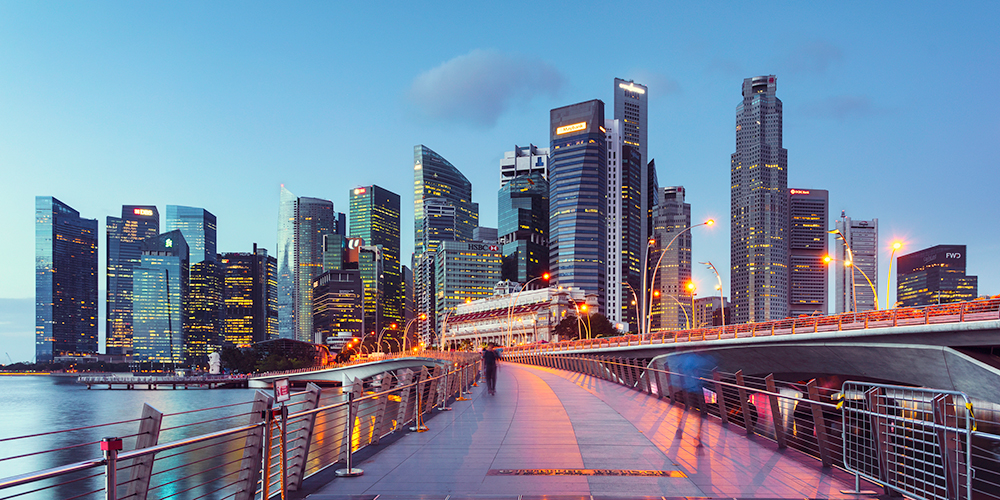
I was in Australia last week, having been invited to give the annual oration by the Robert Menzies Institute, and stopped off in Singapore on the way home. I’ve always been curious about this Southeast Asian city state, having read so much about Lee Kuan Yew, its Cambridge–educated founding father, who holds the record of being the world’s longest-serving prime minister.
When he assumed office in 1959, Singapore was a fading outpost of the British Empire, seemingly destined to be swallowed up by one of its larger neighbours. The population was impoverished, illiterate and riven with racial conflict. It had no natural resources and most of its 224 square miles was swampland. Yet by the time Lee stepped down 31 years later, it had been transformed into an Asian tiger with the second-highest GDP per capita in the region. Today, it is arguably the most successful, best–governed country in the world.
For someone like me, who believes western liberal democracy is the best system of government, Singapore poses a challenge. Lee ruled with an iron fist, exiling political opponents, muzzling the press and introducing severe penalties for low-level anti-social behaviour such as spitting, littering and – famously – chewing gum. Like many post-colonial countries, only one party has been in power since independence and Singapore is dominated by a dynastic ruling family: the previous prime minister, Lee Hsien Loong is Lee’s son. The model has been described as ‘enlightened authoritarianism’ but it’s not that enlightened. Caning is a regular occurrence, drug traffickers are executed, and homosexuality was only decriminalised in 2023.
Yet you only have to set foot in the place to realise just how well run it is. It took all of 20 minutes to get to my hotel from the airport, not because it was close but because traffic jams are virtually unheard of. If you look at the quickest way to get from A to B on Google Maps, buses are often a better option than the subway, although the metro is remarkably clean and reliable. The carriages are decorated with posters featuring smiling cartoon characters telling you how to behave – cute authoritarianism – and among the verboten activities are feet on seats, loud music and consuming food or drink. Hard to argue with that.
Singapore is a low-crime, high-trust society, which is remarkable given that it’s largely made up of different immigrant populations. Lee Kuan Yew put various measures in place to end the racial tension that threatened to boil over in the 1950s and 1960s, the most important of which was to desegregate neighbourhoods. He recognised the dangers of multi-culturalism, insisting that the schools teach children to be proud of their country and introducing national service. It helps that annual growth has averaged about 7 per cent since 1965. Widespread home ownership was made possible by the Housing and Development Board, a state agency responsible for swamp clearance, land reclamation and building tower blocks.
Lee Kuan Yew boasted of being unburdened by ideology and was ruthlessly pragmatic
Lee boasted of being unburdened by ideology and he was ruthlessly pragmatic, with a suck-it-and-see attitude to public policy. If something worked, great, but if it didn’t he’d abandon it. Everything was subordinate to transforming Singapore into a modern economic powerhouse. That inevitably meant he was drawn to conservative measures, even though he originally described himself as a socialist. The highest rate of income tax is 24 per cent, there’s no capital gains tax and inheritance tax was scrapped in 2008. He was an admirer of the British society he observed as a student in the 1940s, but disapproved of our over–generous welfare system. He ensured that education and health, while heavily subsidised, are not 100 per cent free. Social security works differently, too, with employees able to keep track of their payments in different pots and even use some of the money to put down a deposit on a flat.
I could go on. Singapore is a powerful argument not just for one–party rule, but for centralised planning – every technocrat’s dream. Yet I’m not convinced we should abandon democracy quite yet. The 20th century is littered with less successful examples of this model, from Stalin’s Russia to Mao’s China. It works in Singapore because it’s a city state and Lee Kuan Yew was a political genius. The test will come when one of his less gifted successors comes to power, which could turn out to be the current PM. As Aristotle pointed out, the problem with the best kind of rule – a virtuous and wise monarch – is it can devolve into the worst: tyranny. Democracy is more limited, but also less risky.








Comments